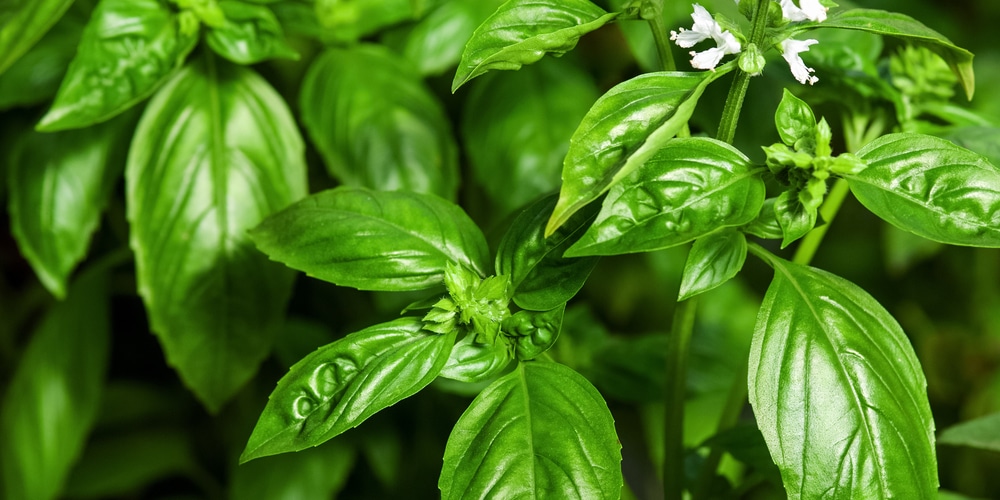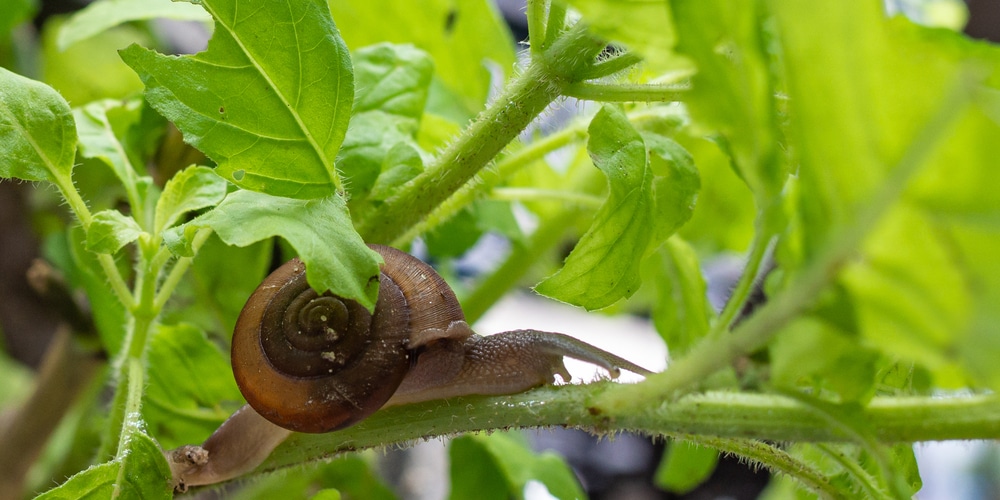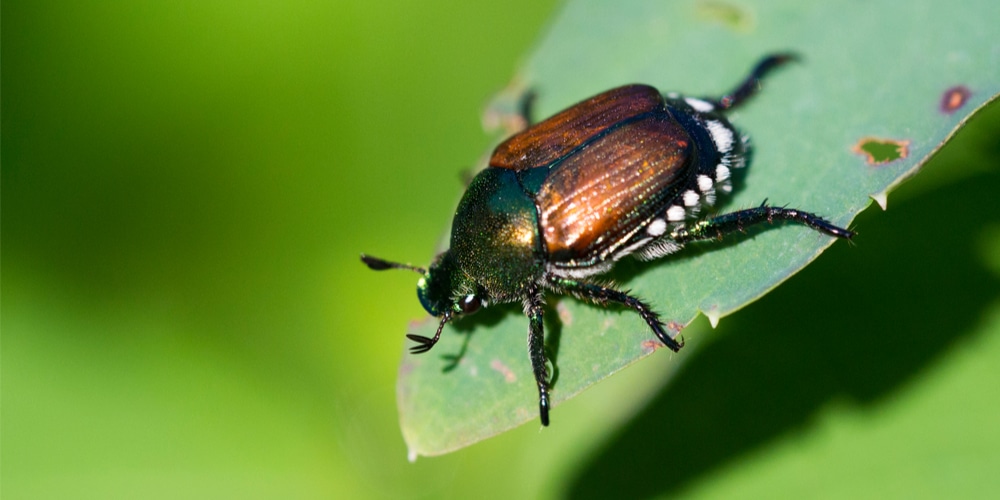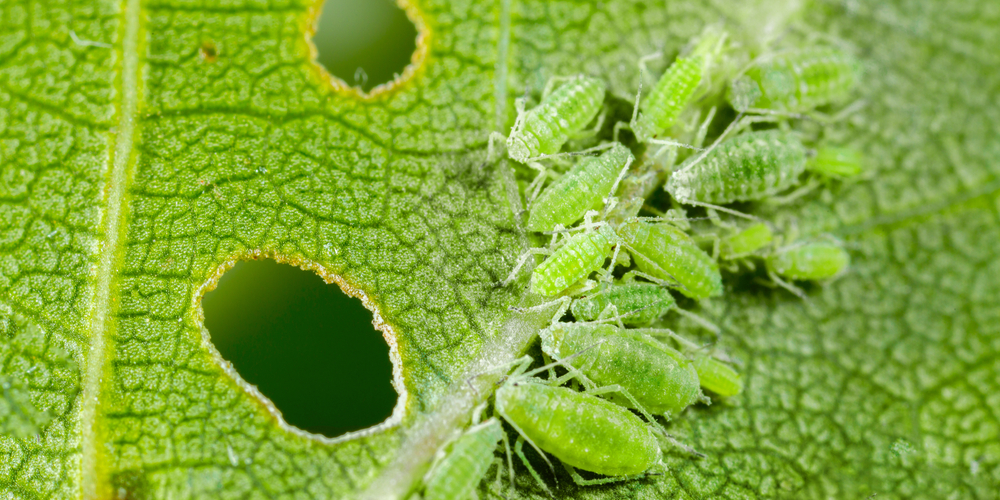Basil is a relatively easy-to-grow herb that requires little maintenance. You will have to harvest and prune your plant to encourage healthy growth and minimize the risk of fungal infections or other diseases. This article will answer the question, ‘what is eating my basil?’
Everyone and Everything Loves Basil

Basil is low maintenance provided you place it in a sunny location (for best results, your plant needs about six hours of sunlight per day) and ensure the soil is consistently moist, there isn’t much more you’ll need to worry about when growing basil.
This herb doesn’t need fertilizer (too much food might hurt your plant and cause a bitter flavor) but is a prolific producer.
Saying that basil isn’t challenging to grow doesn’t mean you won’t encounter issues in your journey. If you notice your plant’s leaves are showing holes, you might be wondering: “what is eating my basil?”. And rightly so. The key to a thriving plant is to take adequate measures when a problem arises (or at least as soon as you notice something is wrong with your plant). And to do that, you’ll need to identify the root cause.
Just like humans love how basil tastes, insects rave for munching on the tender leaves of this plant. Several bugs like to eat on this herb’s leaves. But how can you identify them, and what can you do to stop them? You are in the right place to learn how to protect your basil from attacks from pests.
What is Eating my Basil: All You Should Know

Pests don’t usually like aromatic herbs like basil. Their strong taste and smell keep them away, so many gardeners use them as companion plants to protect their crops from attacks from harmful insects. And the truth is that basil doesn’t attract many insects. But that doesn’t make this plant immune to attacks.
Common pests that harm basil include snugs, snails, caterpillars, Japanese beetles, and aphids. But let’s look at how you can identify each attacker and what you can do to minimize the damage they might cause to your herb.
Slugs and Snails
If your basil is growing outdoors, you will probably have some issues with slugs or snails, especially if you live in a rainy region. If you find round holes around your basil leaves’ edges or traces of mucus on stems and leaves, you know you have a problem with snails. Slugs and snails also eat tomatoes.
Luckily, you can effectively deal with them as long as you act quickly. Indeed, if you don’t take action, these insects might devour your plant in little time. Avoid adding mulch around your plants. Yes, it can help retain moisture, but it will also attract these bugs. Consider sprinkling diatomaceous earth over it to eliminate the snug problem fast.
Caterpillars
Other insects that might bother your basil plant are caterpillars. If your plant’s leaves present chewed edges, you probably have to blame caterpillars. Even if they are the larvae of butterflies and moths, you’ll need to prevent them from attacking your herb. Getting rid of them involves creating a physical barrier. You can use tulle fabric or make a net with anything you have at hand. Alternatively, you can encourage natural predators of these insects in your garden: add a bird feeder to prevent caterpillars from attacking your plants!
Japanese Beetles
Keep an eye out for the notorious Japanese beetle if you are growing basil. The bugs are around half an inch long and usually attack plants in the summer. These insects have an easily identifiable way of eating plants: they love tender leaves and will not consume their veins. So, if you notice your plant having a lacy look, it is the Japanese Beetles’ fault. You can handpick these insects to remove them from your plants and place them in a soapy compound to kill them.
Otherwise, consider using neem oil: it is a natural product that will control these insects without harming your plant.
Aphids
Aphids will attack basil plants living indoors and outdoors. They tend to form large colonies and usually live under the leaves, close to the veins. They feed on the sap of your plant’s leaves, causing them to turn yellow and wilt.
If you notice something off with your plant (and the cause is aphids), take immediate action to contain these insects’ population. Consider blasting the bugs off with a strong jet of water: while this won’t solve the issue, it will help you keep the situation under control.
What is Eating my Basil?: Conclusion
Neem oil and insecticidal soap are more effective and durable solutions to prevent attacks from these insects and eliminate them from your herb. The good news is, basil is easy to revive. Good luck!


